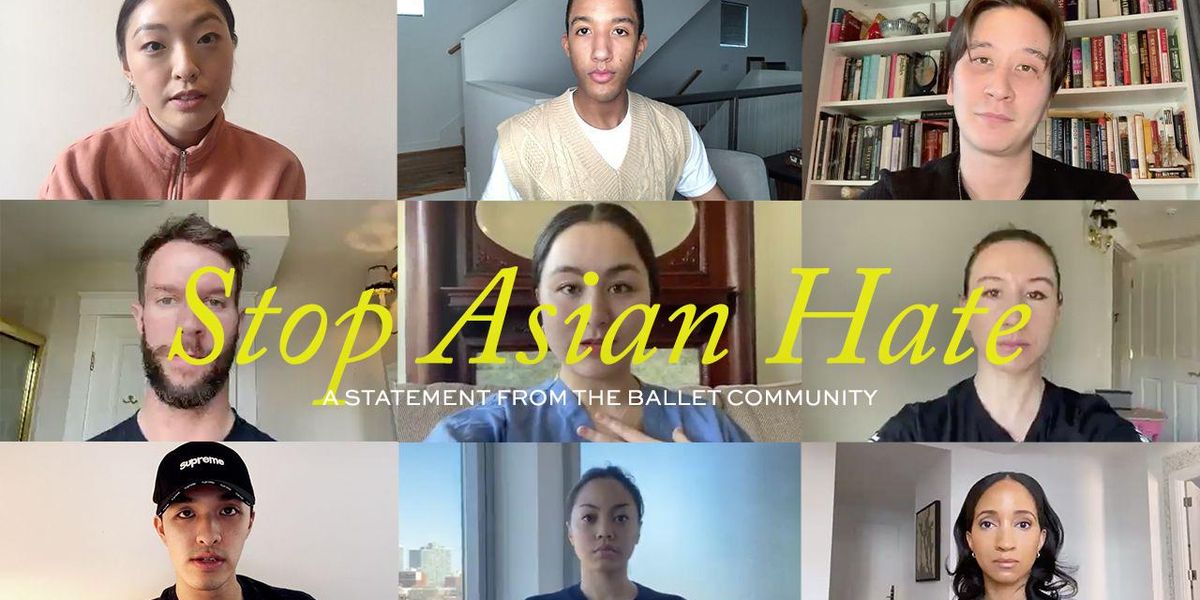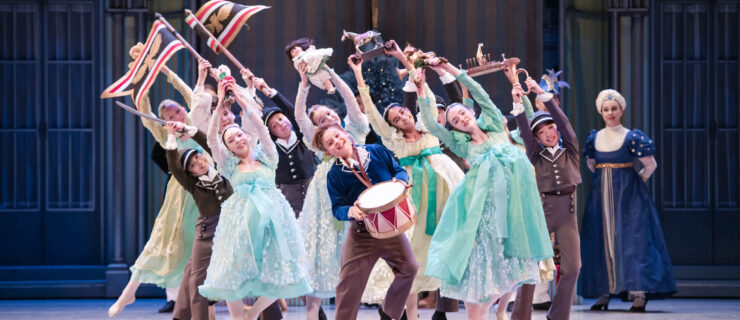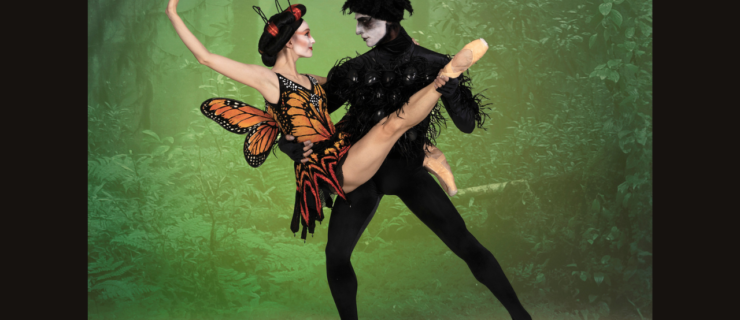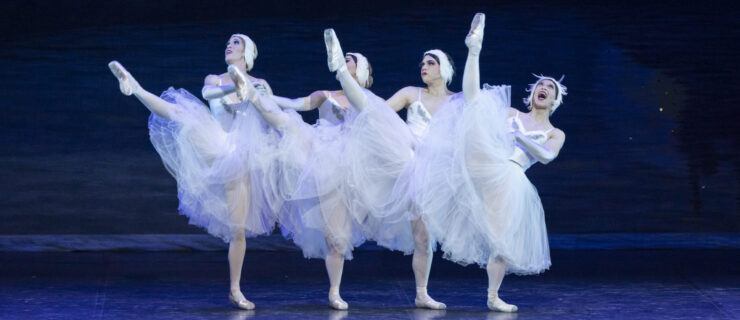With the Help of Social Media, the Asian Ballet Community Is Speaking Out Against Anti-Asian Violence
Amid a rise in anti-Asian hate crimes around the world, Singapore-based dancewear company Cloud & Victory posted a video on March 18 calling for a stop to the hate against the Asian and Pacific Islander (AAPI) community. It features prominent Asian dancers and allies, including former professional dancer Miko Fogarty, The Joffrey Ballet’s Jeraldine Mendoza and Boston Ballet’s Lia Cirio and Paulina Waski.
The video is part of a larger movement of dancers who have been using social media as a platform for activism.
Cloud & Victory founder Tan Li Min says she first began creating the video in late February after recognizing that the articles she had read about anti-Asian crimes reflected a pattern. These crimes have spiked during the COVID-19 pandemic. Stop AAPI Hate, a coalition of three nonprofit organizations, recently reported 3,795 incidents since March 19, 2020, including verbal harassment, shunning and physical violence.
Wanting to raise awareness, Min set out to bring together a community of Asian dancers and allies to create a powerful message. She began reaching out to dancers through social media, quickly gathering a group of artists who submitted videos of themselves making a statement. On March 16, 2021, as she reached the video’s final edits, news broke of a mass shooting at three massage parlors in Georgia that killed eight people, including six Asian women.
Min saw the headlines but couldn’t bring herself to read the articles. She spent the day finishing the video, despite her original plan to post it at the end of the week.
“I knew it was imperative that now, in this horrible moment, we as a community had to make our stand against hate because people were dying,” she says. “And my response—the ballet community’s response—had to be an immediate and vociferous condemnation in no uncertain terms, and acknowledgment of the racism against the Asian community.”
Raising Awareness and Making an Impact
Many of those featured in the video, like Phil Chan, Patricia Zhou and Miko Fogarty, understand the impact of racism and stereotyping, and see an opportunity to advocate for increased awareness and diversity in the ballet world.
Phil Chan, a co-founder of Final Bow for Yellowface, says that the organization’s work on changing portrayals of Asians has always been informed by the understanding that onstage stereotypes translate to offstage perceptions. “If we have terrible representations of us onstage, it means that we can be treated terribly when we leave the studio, leave the theater—and how people see us onstage is how they see us outside, as well,” he says. “Those things are a mirror image.”
Freelance dancer and creative Patricia Zhou recalls working early in her career with a choreographer who referred to female Asian dancers as “Mademoiselles Japon,” while other dancers were identified by the colors of their leotards. She says that microaggressions like these often go unacknowledged and unchallenged, especially when directed at younger company dancers, who are fearful that speaking out may impact their career trajectories. In these circumstances, Zhou says, older dancers, ballet masters or even artistic directors should step in. In general, Zhou believes artistic directors need more management training to learn how to better support their dancers. “It’s not just their job to teach us dances,” Zhou says. “Their job is to maintain the well-being of the company.”
Min says that both the ballet and the Asian communities don’t always encourage speaking up. “As Asians, we’re taught to overcome by putting our heads down and doing the work and not making noise, but I think we often question the legitimacy of our own experiences,” Min says. “I think we have to also consciously speak up, because our voices are powerful.” She also says that the “model minority” myth leads to people outside the community minimizing Asians’ experiences with racism. Min adds that social media allows dancers to more easily connect with causes they are passionate about and issues they identify with in ballet and in the outside world.
After years of being taught to stay quiet in her ballet training, Miko Fogarty, an upcoming podiatric student, ballet teacher and former professional dancer who was featured in the documentary First Position as a child, says she is constantly working on using her own voice to stand up for causes that are important to her. Fogarty adds that social media has improved the dance industry in some ways by allowing dancers to talk more frankly about issues in ballet and in society. She hopes professional dancers will speak up about issues in their companies, since it is likely that others are thinking about the same thing.
“That may open the whole company up to a new discussion that may be very necessary,” she says. Fogarty would love to see companies and schools offer opportunities for dancers of color to create an active dialogue. Being able to communicate concerns with a board or at regularly scheduled meetings could foster a more inclusive environment, Fogarty says.

Carlos Quezada, Courtesy Patricia Zhou
Zhou says she hopes Asian dancers will stay online and continue creating. She had initially considered not posting on social media, or only re-sharing anti-hate messages and canceling the Zoom classes she teaches in order to keep the conversation focused on anti-Asian violence. But she later realized that it was important to continue representing other Asian dancers.
“I need to show that Asians are strong and that we can be role models for people,” Zhou says.
Chan says that Min and the other Asians featured in the video “are building the groundwork for a larger community of Asians in dance that collectively will have a lot more power than we’ve had in the past. We’ll have a bigger voice, we won’t be invisible and we’ll be leading the way creatively in this art form.”
Chan is planning a number of initiatives to bolster Asian representation in dance, including a virtual choreographic festival and a choreographic incubator. And through April, part of every sale from Cloud & Victory’s Every Body Dance collection will go towards the coalition Stop AAPI Hate.
“I am still angry and sad,” says Min, “but as an East Asian woman I am proud that I made my voice heard, and I am encouraged by the dancers who stood with me.”






